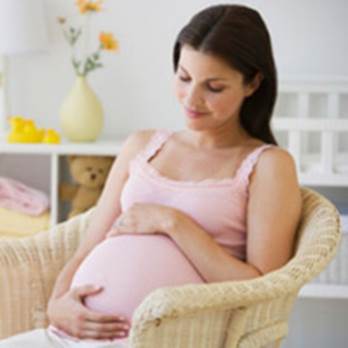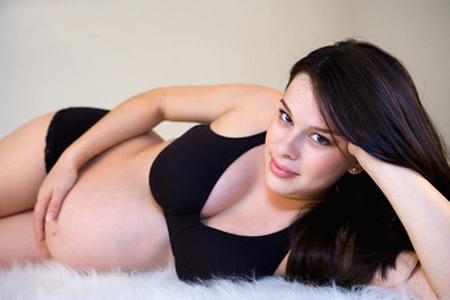The fertility of each woman is different.

Fertility
of each woman is different.
While there are some women who are very
easy to have pregnancy and childbirth, some others face many difficulties in
this problem. They are even powerless in giving birth. But fertility not only
depends on biological factors: healthy lifestyle and simple habits can increase
the chance of being mother for women.
What is women’s fertility?
Fertility is the ability of a woman for
conception, pregnancy and childbirth. Women have fertility from they enter
puberty until menopause.
The doctor said that a reproductive
disorder can occur when a couple cannot have children after one year of
marriage and sexual intercourse without using contraceptive method.
Which factors can affect fertility?
The first element to consider is the age of
reproduction; unreasonable reproductive age significantly reduces fertility.
The best reproductive age for women is between 20 and 30 years old. Before the
age of 20, if a woman is pregnant, it is called early pregnancy compared to the
reproductive years, which is not conducive to pregnancy and birth. Women's
fertility begins to decline from 30 to 35 years old, then it severely reduces
when woman is more than 35 years old. Till 45 years old, the fertility is very
low; some women no longer have fertile and enter menopause. Age plays an
important role in fertility because the ovulation may be unusual or not occur
and the uterus is incapable to raise the pregnant when women are not at
reproductive age.
Fertility depends on their living habits:
smoking, drinking alcohol, drugs or caffeine can affect the chance of
conception. Women who do not use stimulants are easier to conceive than those
who use stimulants. Women with anorexia and obesity also have less chance of
conception and reproduction.

Women's
fertility is the ability of a woman for conception, pregnancy and child birth.
Another important factor is that exposure
to toxic substances (radiation, pesticides, solvents...) can lead to
infertility.
Stress is also a factor that affects
fertility: a comfortable and serene woman has higher ability to give birth than
a woman who is always stressful at work or in everyday life.
The last factor affecting fertility is the
frequency of sex: Women who only have sex a few times a month and is not in
time of ovulation is difficult to conceive
How to increase your chance of conception?
After a few months having sex, if you do
not see any sign of pregnancy, you should change your lifestyle. Relax in the
evening after work, or go for massage.
Learning to identify your ovulation date
are efficient and simple methods that can help you measure the body temperature
in the morning when you wake up. If your temperature rises about 0.5 degrees in
a certain day, that day is your time of ovulation in month, or you should
regularly check, observe cervical membrane, or purchase a urine test tool to
determine the date of ovulation when you think it is time of ovulation.
Stop all bad products for fertility such as
cigarettes, alcohol, coffee, and replace it with good ones for fertility such
as fruit juice. Be sure to have a balanced and diversified diet (meat, fish,
vegetables, fruit, milk...) and you are not allowed to skip meals; you'd better
drink water often.
You should always do exercise, do not stand
or sit for too long in one place. Doing gentle exercise no more than 30 minute
/day helps your body be healthy to conceive.
The last factor helping you increase your
chances of conceiving is that you need to have sex frequently at the time of
ovulation. However, you should not have sex too much in this period because it may
affect sperm quality and make it is difficult to conceive. You can have sex
every 24 hours at the time of ovulation. Especially, the love of husband and
wife must always burn and be happy to help you increase your chance of
conception.